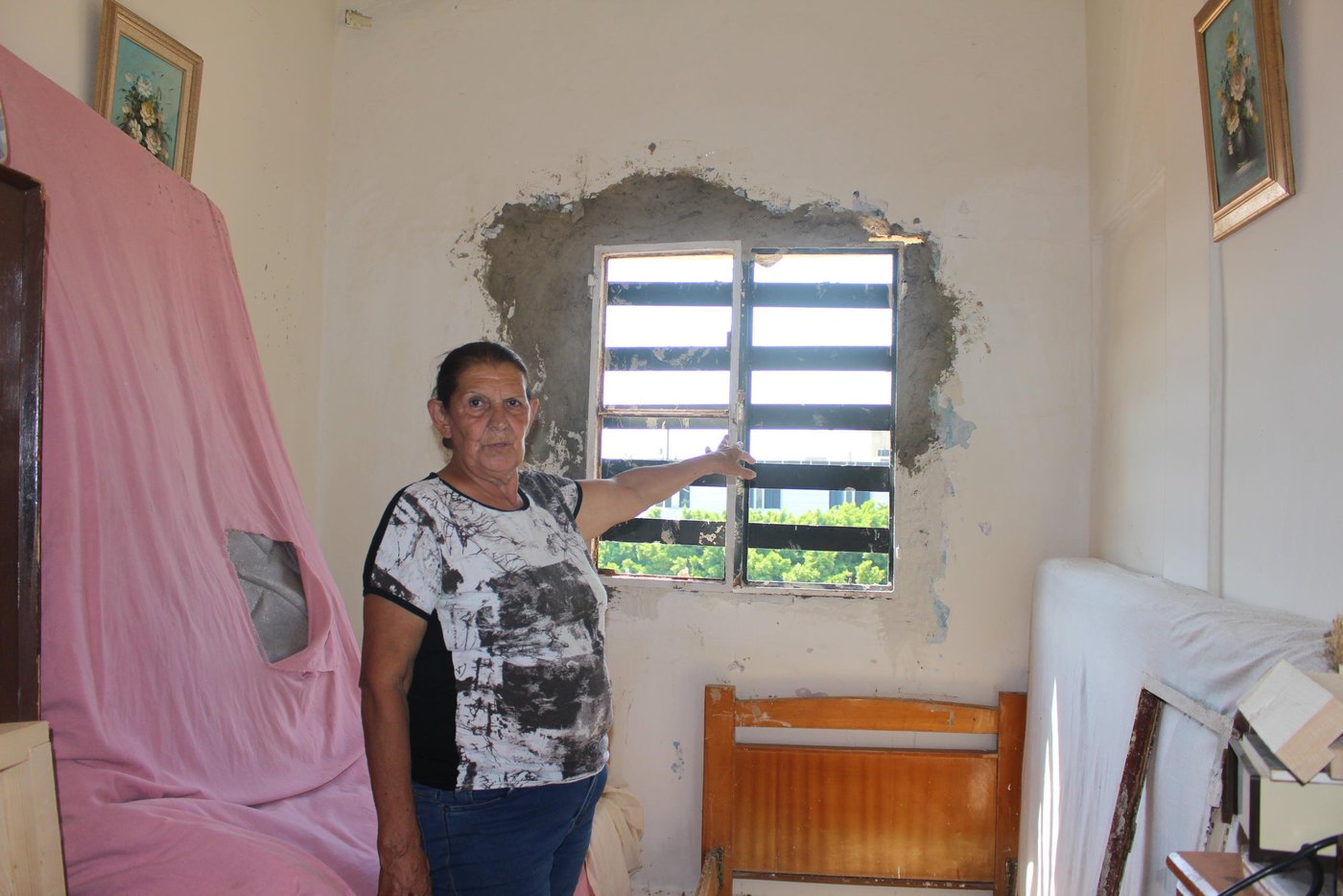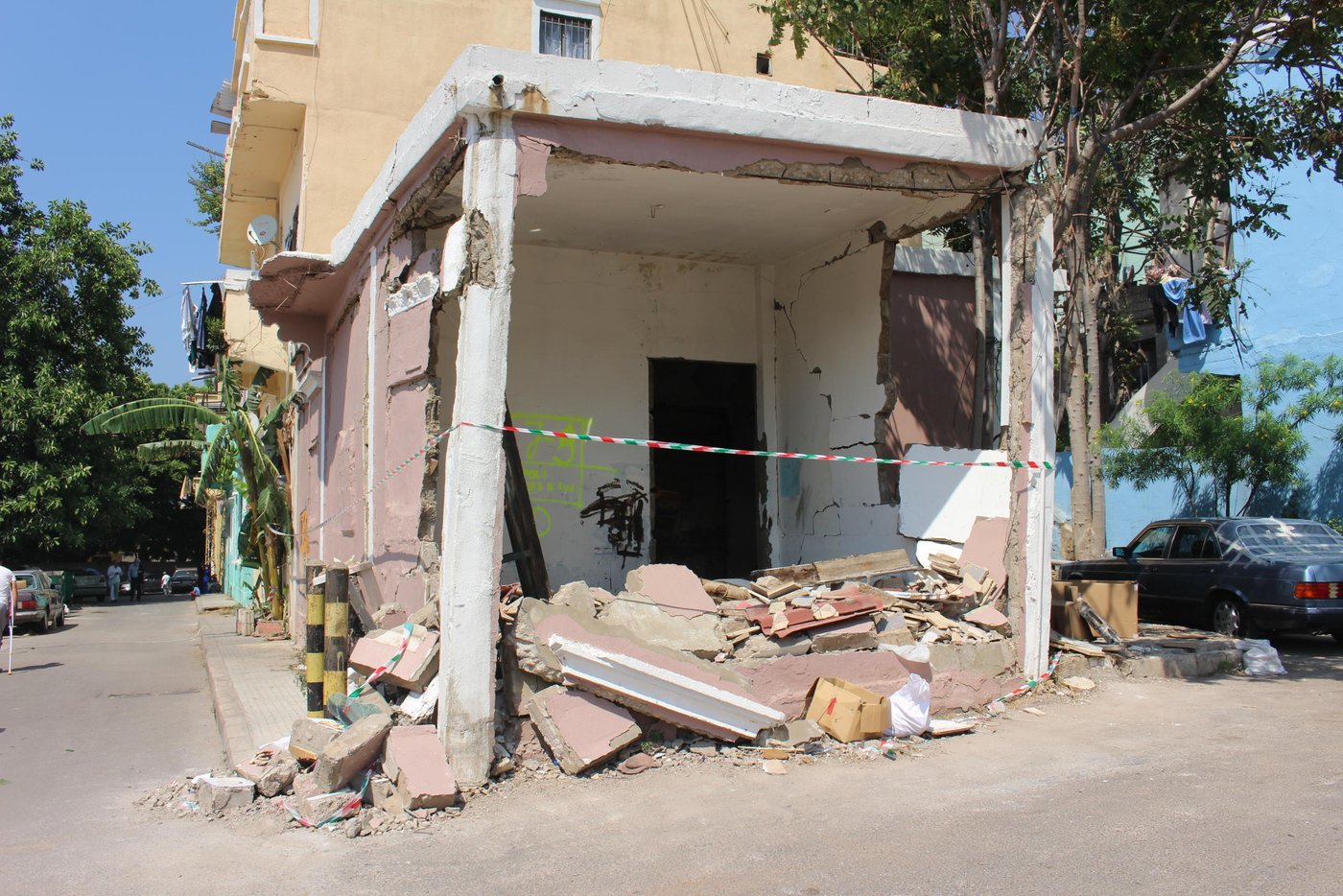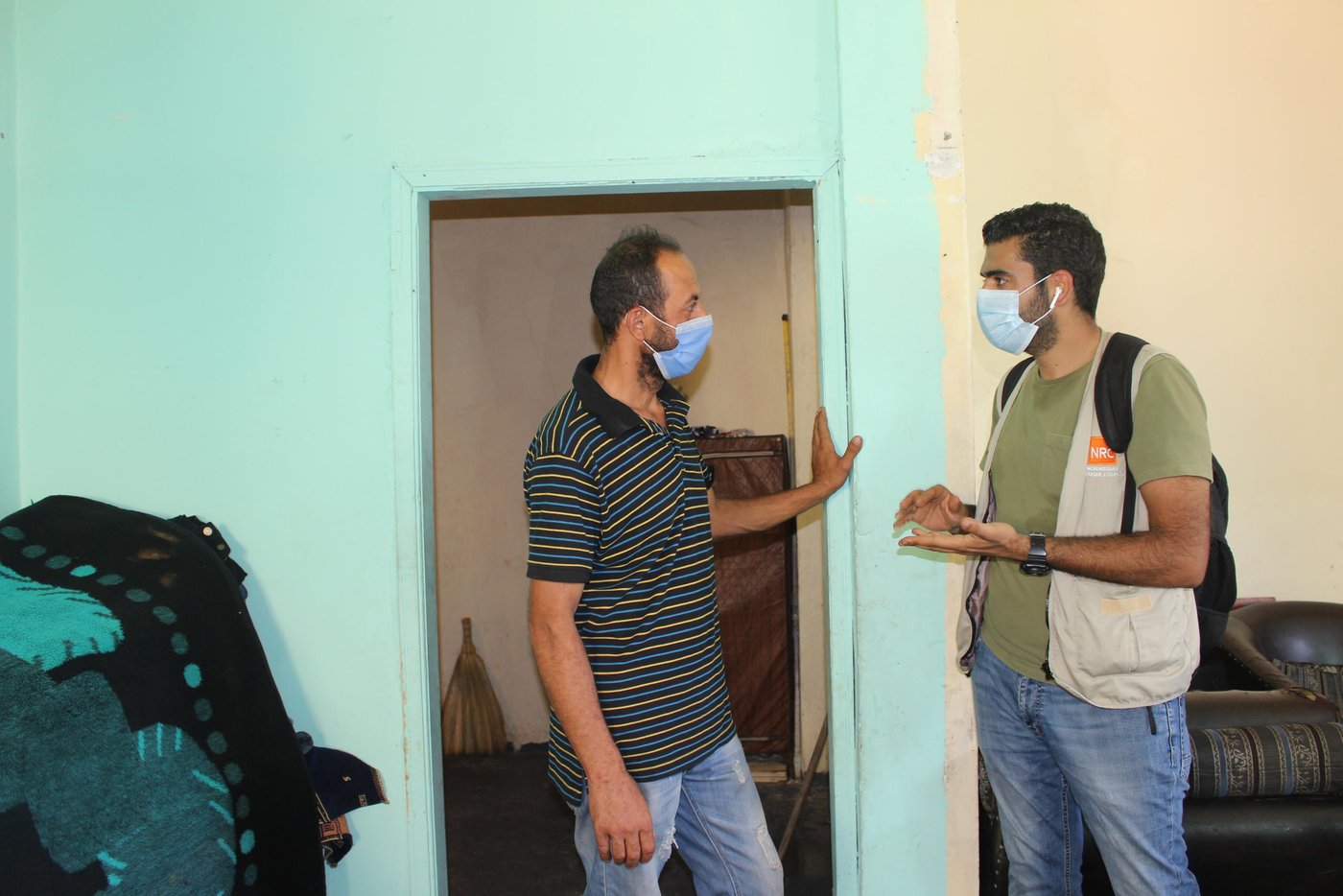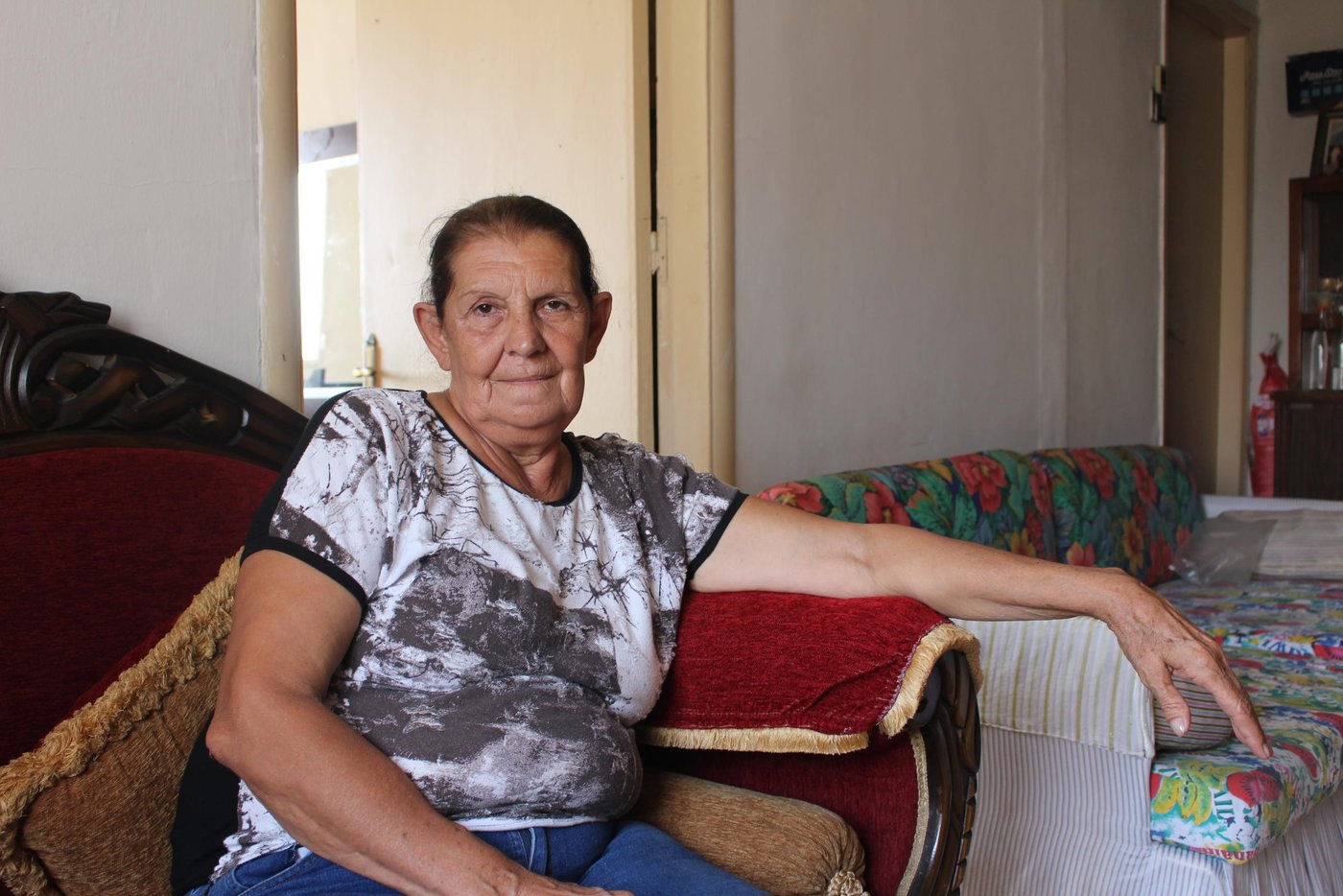4. august 2020 ble havnen i Beirut rammet av en voldsom eksplosjon, som førte til omfattende skader i hele hovedstaden. Minst 176 mennesker døde og mer enn 6000 ble skadd. Libanons regjering anslår at eksplosjonene har gjort mer enn 300 000 mennesker hjemløse.
Hayat (70) er en av de mange tusen som ble direkte berørt av eksplosjonen. Hun bor i Karantina-distriktet, som ligger mindre enn én km fra eksplosjonsstedet. Sønnene hennes bor i andre etasjer i den treetasjes bygningen sammen med familiene sine.
Dette er Hayats opplevelse, fortalt med hennes egne ord.
– Vi er heldige at han overlevde
Jeg visste ikke hva jeg skulle gjøre. Min første tanke var at sønnene mine ikke kunne ha overlevd. Så så jeg sønnen min, Giofar, komme opp trappene og ba meg med frykt i stemmen om å sjekke om jeg hadde det bra. Blod dryppet fra hodet hans og kroppen var dekket av glasskår.
Vi har bodd i denne bygningen i 27 år. Jeg opplevd alle krigene og konfliktene, men jeg har aldri sett Beirut så ødelagt. Området utenfor så ut som en slagmark, på en måte du ikke kan forestille deg. Folk løp rundt i panikk, døde mennesker lå på bakken, det var blod overalt, bygninger hadde rast sammen, biler var dekket av bygningsrester og knust glass dekket gatene.

Det er et sykehus på den andre siden av gaten for leiligheten vår, men det ble totalt ødelagt, og vi klarte ikke å få sønnen min til sykehus. Han forsvant for oss i kaoset på gaten, men en politimann hadde sett at han var skadet og tok ham med til et annet sykehus omtrent 15 km fra der vi bor. Da han kom tilbake, hadde de sydd igjen sårene hans. Vi er heldige at han overlevde.
Kona til den andre sønnen min fødte noen timer før eksplosjonen. Hun fikk en liten gutt. Sykehuset måtte sende henne hjem bare noen timer etter fødselen for å frigjøre plass til dem som ble hardt skadet i eksplosjonen.
– De slapp ikke unna døden
Alle barnebarna mine er traumatiserte. De er redde og klarer ikke å sove om natten. Hver gang de hører en høy lyd, begynner de å skrike og frykter at det kommer en ny eksplosjon. Hele tiden er vi bekymret for at noe vil skje.
Når jeg ser på ødeleggelsene rundt oss, kan jeg bare si at vi ble reddet ved et mirakel. Når alt kommer til alt, kan materielle skader erstattes. Vi kan kjøpe nye møbler eller klær, men hvis noen blir skadet eller dør ... kan vi ikke erstatte et liv.
En av naboene i bygningen ved siden av er fra Syria. Han har bodd her alene en god stund, mens resten av familien bodde i Syria. For noen uker siden ble situasjonen i hjembyen deres i Syria forverret, så han tok dem med hit så de kunne unnslippe krigen og være i sikkerhet. Men de slapp ikke unna døden. De ble knust av sammenraste vegger etter eksplosjonen, og kona og to døtre døde. Når du ser ham nå, virker det som om han har blitt gal.

– Vi trenger alles hjelp for å gjenoppbygge Beirut
Vi har behov for mye hjelp nå. Vinduer, gardiner og møbler er ødelagt. Det knuste glasset ødela alt, og veggene har falt sammen. Kjøkkenet mitt virker ikke, og vannrørene er ødelagte. Vi er avhengige av at boligene våre raskt blir reparert, men vi har ikke råd til å betale for reparasjonene. Vi vet ikke når vi vil få hjelp, men vi trenger alles hjelp til å gjenoppbygge Beirut.
Noen synes kanskje ikke akkurat dette er så viktig, men sønnene mine og jeg mistet TV-ene våre, og vi har ikke råd til å kjøpe nye. Men det er viktig å ha en TV fordi det er den eneste måten jeg kan følge nyhetene og holde meg oppdatert om hva som skjer i landet.
Mannen min døde da barna mine var veldig små, og jeg oppdro dem som enslig mor. Jeg gjør alt jeg kan for å oppdra dem og sørge for at de er trygge. Min største frykt er at jeg kan miste dem nå når de er voksne. De er alt jeg har, og hvis noe skjer med dem vet jeg ikke hva jeg skulle gjort. Situasjonen i landet vårt har blitt uutholdelig. Vi er helt knuste og hele befolkningen er sliten. Libanon har lidd nok.



